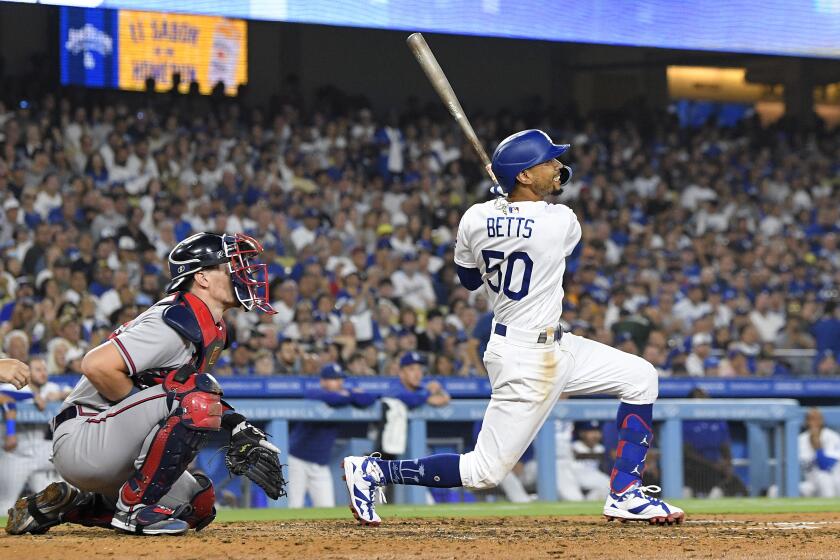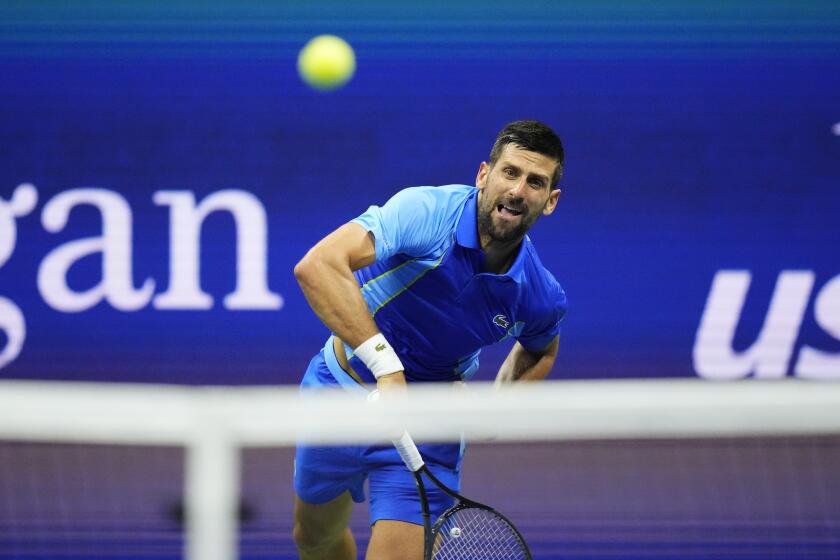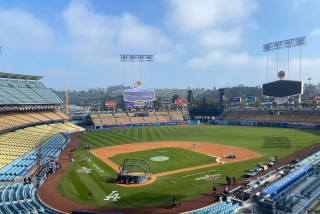
- Share via
For Barry Heller, summer evenings used to have a pleasant routine. The sun would set, and the Dodgers would play on his television.
In 2014, the Dodgers launched SportsNet LA. For the channel’s first six seasons, including the one that featured Clayton Kershaw’s no-hitter and the final three of Vin Scully’s distinguished career, the Dodgers were off the air in much of Southern California. Companies fought. Fans lost.
In 2020, this headline appeared in The Times: “Dodgers TV blackout is over.”
For many fans, as it turned out, but not for all. Heller is a customer of Cox Communications, which provides cable service to parts of Orange County, the Palos Verdes Peninsula and Santa Barbara County.
Hernández: Strong hitting against Braves suggests Dodgers may avoid another postseason collapse
The Dodgers know they can’t rely on pitching to mount a long postseason run. The Dodgers will have to hit their way to the World Series, and they might have the platoon players to do it.
To this day, Cox does not carry SportsNet LA, so Heller also missed a World Series championship season, a 111-win season and a 106-win season.
“I thought they would come around,” Heller said. “It would seem to me that they would be able to offer it and just charge a fee to those people who have Cox and want to be able to use it. I’d be willing to pay that, as a Dodger fan.”
Now, for the first time, Cox can do that.
That Cox will not commit to doing that — even after the company pledged it would — reflects the unprecedented volatility of sports media.
Just look around the National League West.
The Arizona Diamondbacks and San Diego Padres started the season on Bally Sports. Then Bally filed for bankruptcy, decided it no longer could afford to pay those teams, and for now Major League Baseball handles the broadcasts, with different cable and satellite channels and a new streaming option as well.
The Colorado Rockies are on AT&T SportsNet, which is going out of business after the season. The Rockies could join the NBA‘s Denver Nuggets and NHL‘s Colorado Avalanche on their regional network, or they could turn to MLB too.
As a result, the broadcast revenue for the Diamondbacks, Padres and Rockies is likely to decline — less money to use in competing against baseball’s most consistently successful team.
The Dodgers are in an enviable position, thanks to owners who laughed off criticism they overpaid to buy the team at $2 billion and then signed the last of baseball’s great local television deals, worth more than $8 billion and now guaranteed by Charter Communications, a company with $54 billion in annual revenue.
“Yes, we are very fortunate,” Dodgers President Stan Kasten said. “We are in a good situation.
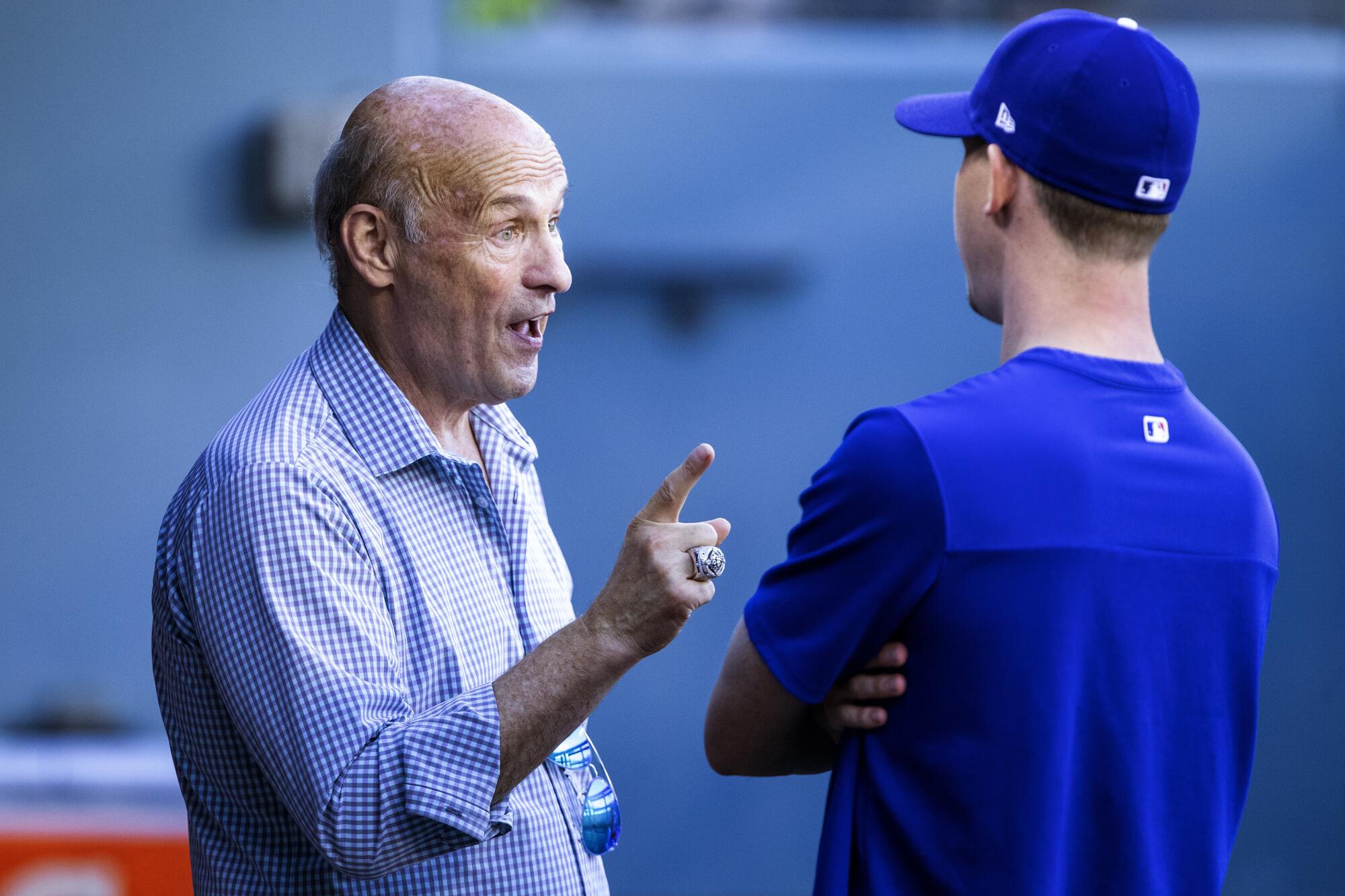
“The problems that are hurting teams now are not affecting us directly, but anything that is a thorn for our industry is a concern to all of us. So it’s a concern to us as well.”
Cable and satellite subscriptions in the United States fell from 74 million in 2019 to 52 million in 2023, according to S&P Global Market Intelligence. That is cord cutting in full bloom: a 30% drop in just four years.
And the survival of the Bally networks, including the Angels’ home on Bally Sports West, remains in question. The bankruptcy court might bless a restructured Bally — or it might not, with local television rights and revenues for the Angels and 11 other MLB teams, 15 NBA teams and 12 NHL teams hanging in the balance.
Streaming no longer is considered a slam-dunk alternative to cable and satellite. For the first time, ESPN+ last month reported a decline in subscribers. And, whenever ESPN itself becomes available as a streaming option, the cost reportedly could be as much as $35 per month.
How much would you pay per month for streaming subscriptions — some for your favorite teams, others for your favorite shows?
MLB offers streaming for the Padres or Diamondbacks at $19.99 per month. NESN, which carries the Boston Red Sox and NHL‘s Boston Bruins, offers streaming at $29.99 per month.
If you get NESN as part of a cable or satellite package, according to S&P estimates, you pay $5.22 per month for the channel — whether you watch it or not.
This is the so-called bundle: everyone pays for every channel, even though most people don’t watch most channels. As that model collapses, so do the ever-rising revenues that television providers have long promised teams and leagues.
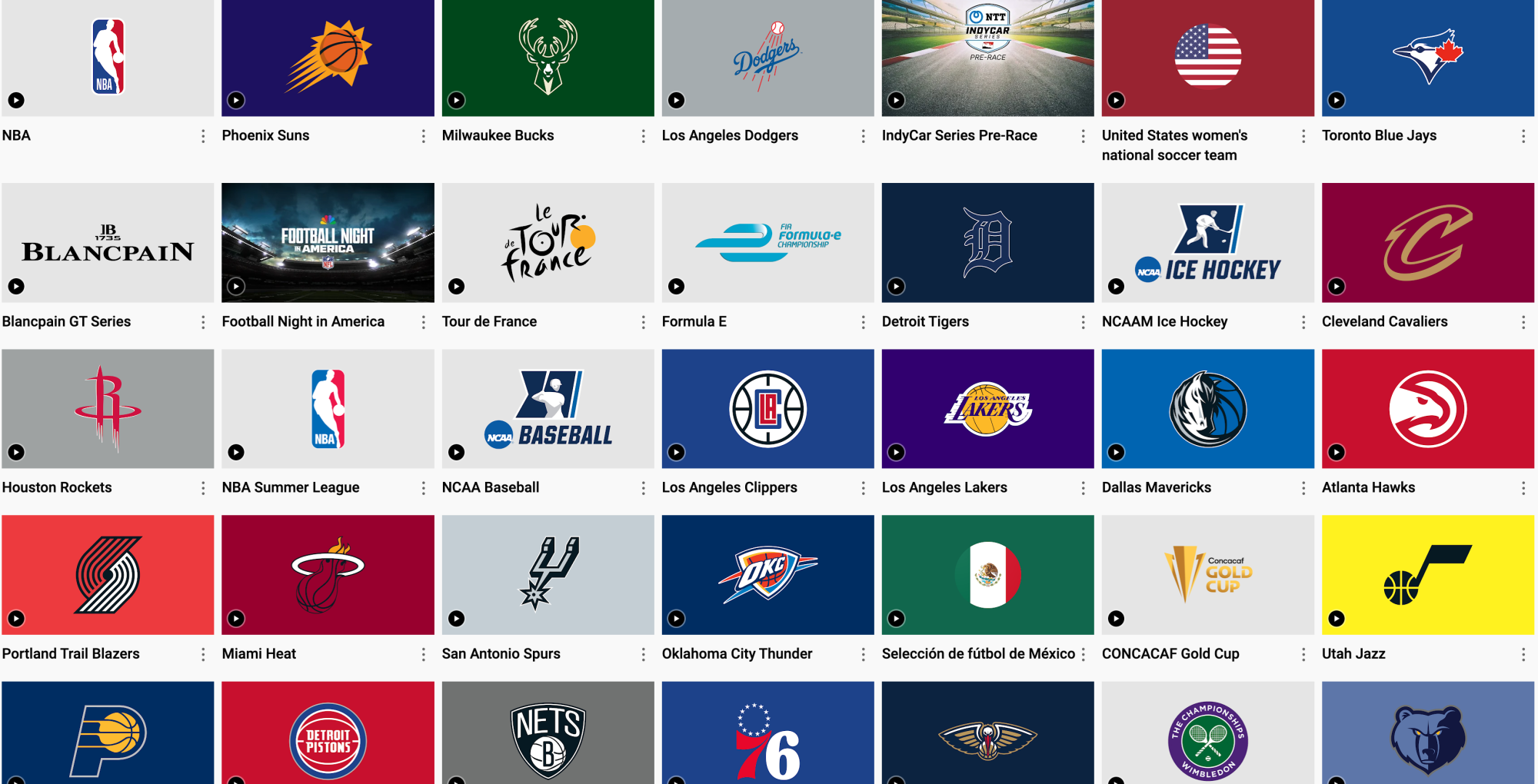
“It’s a great business model when a whole bunch of people pay for something they don’t really care if they have or not, which is what the cable bundle did for us,” MLB Commissioner Rob Manfred said this year. “It’s hard to replicate that.”
In the short term, MLB agreed to streaming deals — test runs, essentially — for selected weekly games on Apple+ and Peacock.
If you’re a Dodgers fan, you could not see every game this season unless you got SportsNet LA, ESPN, Fox, Apple+ and Peacock. And plan ahead: You’ll need TBS to see the National League division series and championship series.
Sports broadcasting is going to be trial and error for the next few years, at least. The NBA‘s Phoenix Suns and NHL‘s Vegas Golden Knights are ditching cable and satellite and launching a combination of free, over-the-air television and streaming subscriptions.
The boldest move: Major League Soccer sold every league game in one package, to Apple TV+. Fans can see all the games, all in the same place, for $12.99 per month.
TV Grids for the entire week of March. 28 - April. 3 in PDF format for easy downloading and printing
Could MLB do the same? League executives would love to, someday, so long as streaming would not be the only option for fans. Even if all 30 teams agreed to pool streaming rights, however, this debate would be intense: Should every team get an equal share of revenue, or should the Dodgers and New York Yankees get more because they attract more viewers?
We could talk more about the uncertain future of sports television, but let’s get back to our friend Barry Heller, who just wants to watch the Dodgers.
“We would like every fan to be able to watch our games,” Kasten said.
Cox and other outlets that declined to carry SportsNet LA said they did so because they did not want all their subscribers to have to pay for a channel that most of them would not watch. SportsNet LA costs $6.12 per month, per subscriber, according to S&P estimates.
Here is how Cox spokesman Todd Smith explained it to The Times three years ago: “Our interest in SportsNet LA hasn’t changed. If we can get a reasonable deal that doesn’t overburden our entire video customer base in the market, we’d love to carry the content.”
Charter, the parent company of Spectrum, used to shrug. As the ads once said: “No Spectrum? No Dodgers!”
The carriage fee dispute means that millions of Spectrum customers will go without “Jeopardy!,” U.S. Open tennis coverage and football on ESPN. The cutoff coincided with the start of a highly anticipated college football game between Utah and Florida.
No more.
The cord-cutting has gotten so rampant that Charter has thrown up its hands and surrendered. Charter is planning a streaming service, so that nonsubscribers can pay to see the Dodgers.
And no longer will Charter require other companies to force every customer to pay for SportsNet LA, which might help keep nonsports fans from canceling their cable entirely. (Charter would like Disney to extend the same flexibility for the ESPN channels currently blacked out on Spectrum; the two corporations are fighting over that as well as over streaming rights to those and other Disney channels.)
Charter now allows Cox and other outlets to put SportsNet LA on a premium sports tier, where only those customers who want to see the Dodgers would have to pay for that channel.
That is what Smith had said Cox wanted. So I asked Smith whether Cox would now offer SportsNet LA. He offered a statement that did not answer the question, or even mention SportsNet LA: “We remain open to reasonably priced content and flexible carriage terms that provide good value for our video subscribers.”
Heller sighed. It has been a long few years. He cannot watch the Dodgers on his television. And since July, The Times has stopped including box scores and daily Dodgers game stories in its sports section.
Said Heller: “Cox and the L.A. Times are making it hard to be a Dodger fan.”
More to Read
Are you a true-blue fan?
Get our Dodgers Dugout newsletter for insights, news and much more.
You may occasionally receive promotional content from the Los Angeles Times.

